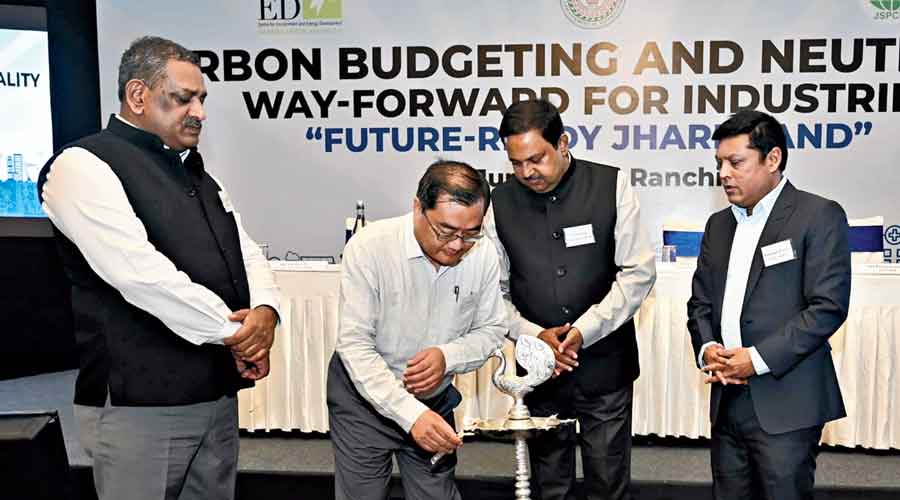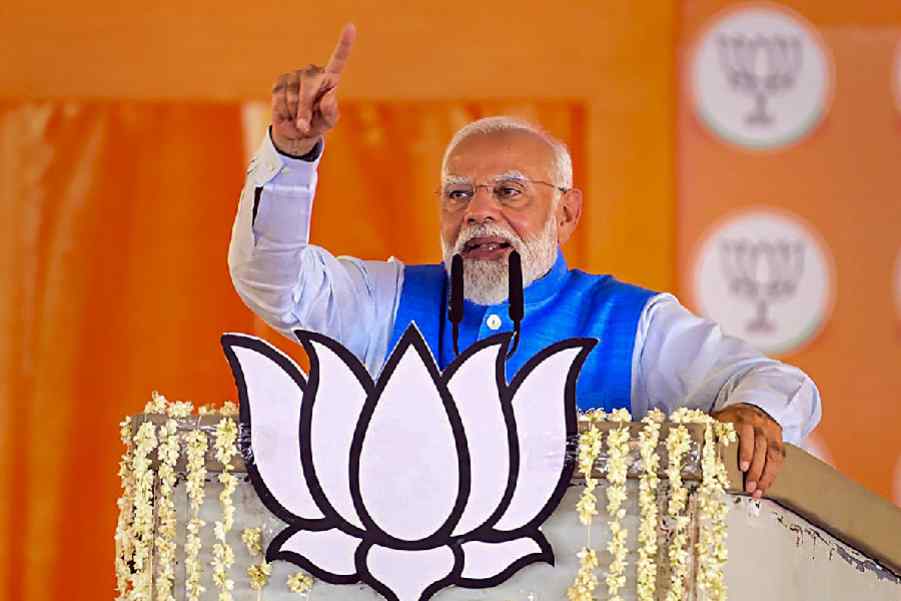A workshop of the Jharkhand State Pollution Control Board forged a consensus on bringing a development roadmap on carbon neutrality and putting an accountability regime for robust carbon budgeting to implement the effective steps towards achieving the ambitious climate goals.
The day-long state level workshop of the JSPCB in association with its technical partner Centre for Environment and Energy Development (CEED) was held with the objective to bring perspectives on current status of carbon emissions and seek carbon neutrality related commitments from key industries for achieving net-zero target in Jharkhand.
Elaborating the broader context of the workshop, chairman JSPCB A.K. Rastogi said: “In the light of the Union government’s resolution to achieve net zero emission by 2070, we are at the cusp of sustainable transition. Industries have traditionally been the key driver of economic growth, employment generation and social development.
With ambitious climate and policy goals, industry and business sectors now have the greater onus to attain carbon neutrality and further contribute in creating a future ready economy in the state.
“Our path for the future must be carefully charted, while keeping the interests of vulnerable people at the centre of policy and programmes,” Rastogi stressed.Significantly, the concept of carbon-neutrality is based on balancing carbon-dioxide emissions with its removal associated with various sources including industries, transportation, energy production, and agriculture so that net-zero emission is achieved.
In the Glasgow convention (2021), a global consensus emerged to achieve carbon-neutrality by the coalitions of more than 70 countries, where India has also committed to achieve it by 2070.This ambitious target, therefore, requires collective efforts from all key stakeholders particularly industries and business sectors that have traditionally been the largest emitter of the Greenhouse Gases (GHG).
“There is an urgent need to transition to a resource efficient, sustainable and low-carbon economy in order to support inclusive growth. For balancing economic growth with climate-goals, it will be prudent to identify linkages between development needs, decarbonisation process and low carbon opportunities of the state,” said additional chief secretary forest, environment and climate change, Jharkhand, L.Khiangte.
It was shared in the conference by CEED that key sectors — energy, industry, transportation, petrochemicals, infrastructure and agriculture — contribute to more than 96 per cent of India’s GHG emissions.
Jharkhand Action Plan on Climate Change (2014) also notes that carbon-dioxide equivalent emissions from heavy industries are quite high, while the steel sector contributes the largest emissions followed by copper and cement in Jharkhand.
Highlighting the need of robust planning and financial mechanisms, secretary planning and development Jharkhand, Rahul Sharma said that, “Climate financing will be the driving force behind the transition to the carbon-neutral economy. This places immense roles for public and private financial institutions and leading companies to bolster the transition through continued efforts in planning and financing green infrastructure and path breaking techno-solutions in the state.”
CEO CEED Ramapati Kumar appreciated the move by the JSPCB for bringing on board the industries sector for creating a roadmap for ensuring zero carbon future.
“Commitments towards a sustainable transition would encourage industries and investors and it will also enable a forward looking policy ecosystem that can help reduce risk perceptions and unlock greater potentials. What is required here is efficient climate governance that can facilitate convergence of efforts led by government; agencies and key actors such as industries, business, think-tanks, academia and civil society to put Jharkhand on the path of sustainability,” said Ramapati Kumar.
The first session looked at the overview of the carbon budgeting in national and international framework, and its relevance in Jharkhand. Second and third sessions pondered over perspectives and commitments from key industries (such as coal, power, steel, cement, chemicals, etc) on the carbon budgeting process to present cutting edge techno-development solutions.
Fourth session identified possible pathways and enabling frameworks for achieving carbon neutrality in the state.The conference concluded that decarbonisation of the industries sectors can be catalysed through developing longer-term technology roadmaps and collaborative research and development enabled options like moving away from fossil fuels to low or zero carbon fuels, deploying carbon capture and storage (CCS) technology and capability building of stakeholders to achieve a high degree of circular economy and sustainability in Jharkhand.










